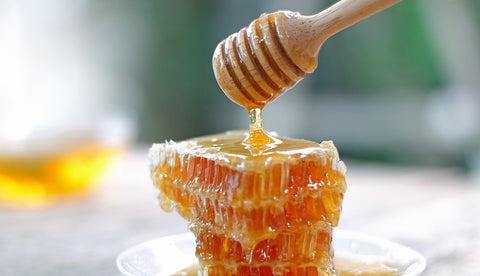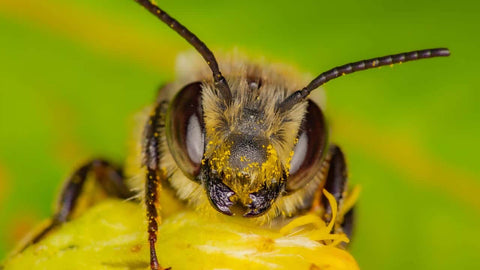Enzymes are molecules found naturally in the body that aid in the breakdown of materials so that they may be utilized by the body. They are frequently followed by the letters “-ase.” Lactase, for example, degrades lactose (milk sugar), whereas lipase degrades lipids (fats). Enzymes are produced by all living organisms. We wouldn’t be able to live if these enzymes weren’t present.
Many ailments are caused by a shortage of enzymes in the diet, including indigestion, constipation, bloating, lethargy, and headaches. Fresh and raw foods, particularly fruits and vegetables, are high in enzymes. According to dietary experts, eating vegetables at the outset of a meal flushes the intestinal tract with enzymes that aid in the breakdown of the food.
Truly Raw honey includes an incredible amount of enzymes, in fact over 5000 distinct enzymes. These enzymes have a rapid detoxifying effect on the body because they begin breaking down the body’s poisons right immediately.
When truly raw honey is blended with cold or warm water, the detoxifying action is magnified many times. Sally Fallon (nutrition expert) revealed a Russian study that attempted to determine why so many Georgians lived to the age of 100.
According to Fallon, “several of these centenarians were beekeepers who frequently ate raw, unfiltered honey with all its ‘impurities,’ that is, with the pollen.”
Diastase
Amylase, often known as amylase, is a digestive enzyme that breaks down complex carbohydrates into simple chemicals that may be absorbed by the body. Rice, pasta, cereals, potatoes, and bread are examples of complex carbohydrates.
Truly Raw Honey’s diastase content varies depending on the floral source. If truly raw honey is heated for an extended period of time, the diastase content falls.
Invertase
Invertase converts sucrose, which is contained in simple sugar, into glucose and fructose. In other terms, invertase aids the body’s digestion of sugar.
Glucose oxidase
Glucose oxidase generates hydrogen peroxide, which is responsible for the potent antibacterial effects of truly raw honey.
Peptidase
Peptidase is a proteolytic enzyme that breaks down proteins into amino acids, allowing proteins to be better absorbed by the body.
The ideal approach to benefit from truly raw honey’s high enzyme content is to combine a teaspoon into a glass of cold or warm (not hot) water and drink it first thing in the morning on an empty stomach.
Flooding the body with digestive enzymes at the start of the day helps digestion since it relieves the body of the burden of producing these enzymes on its own.
Raw honey offers natural nutrients that will help you get through the day. Truly Raw honey has a low gi, which means that the sugar content is processed slowly by your body. That means no sugar crashes!
When you need to recharge, skip the stuff with all the preservatives and go right for the real thing: Honey All Day’s handy honey pouches.




